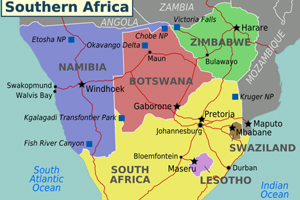Southern Africa: “Potential for poultry market growth”

With southern African countries importing substantial volumes of chicken meat, there is great potential for their own production to double or even treble over the next few years, according to Pieter Oosthuysen, regional manager for Cobb.
There are about 150 million people in the Southern African developing countries, with most not self-sufficient in chicken production and competing with imports that affect local meat prices through oversupply, says Oosthuysen.
“If the same rate of chicken consumption of South Africa is applied to Namibia, the current production would need to increase three fold over the next few years to meet the demand. The biggest limiting factors in developing these markets are lack of infrastructure, shortages of raw materials such as maize and soya, and availability of water.
Oosthuysen, who was appointed key accounts and regional technical manager for Cobb last autumn, says with four Cobb500 grandparent operations in Southern Africa, sales of parent stock are showing good growth.
“In the biggest market of South Africa with just over nine million parent stock, most medium to small integrations are using the Cobb500 due to it being a balanced breed and performing well in breeders, hatcheries, broilers and the processing plant. Namibia is 100% Cobb500 due to the efficiency of the breed.
“Strong technical support from Cobb Europe and Cobb South Africa is ensuring that customers in the region benefit fully from the all-round performance of the breed.”
There are Cobb grandparents operations with Hybrid Poultry in Zambia, Irvine’s in Zimbabwe, and Pioneer Foods and Rainbow Farms in South Africa. Cobb Africa, based in Johannesburg, supplies most of the sub-Saharan countries directly from its operation in Zimbabwe or from Europe. They are involved in supplying hundreds of thousands of day-old broiler chicks in Africa per week.













